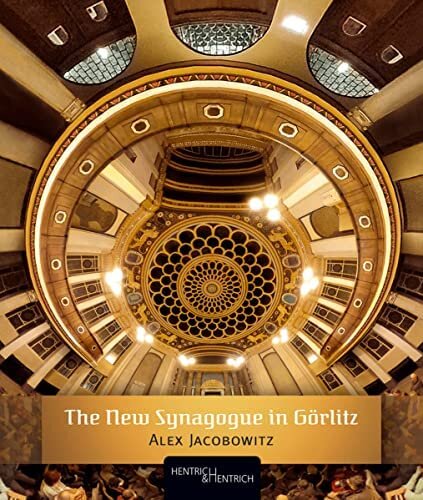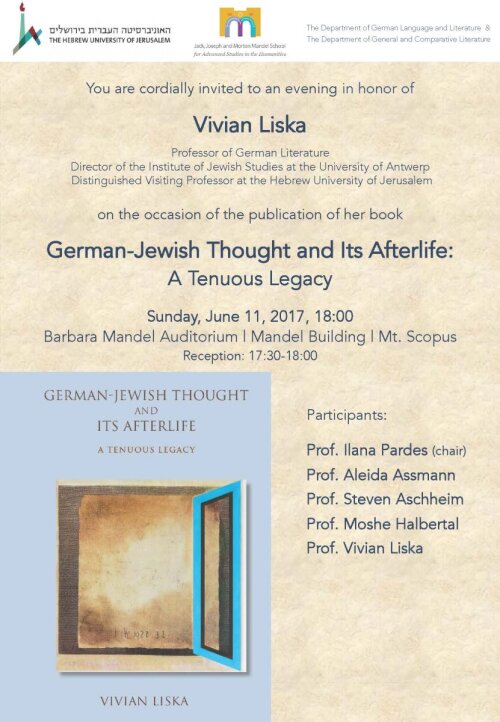Tefillah and Jewish Knowledge
Call for papers : Mapping Jewish Literary Presence in Italy: Circulation, Mediation and Reception
Call for papers
International Conference
KU Leuven
Mapping Jewish Literary Presence in Italy: Circulation, Mediation and Reception
4-6 June 2024
Academia Belgica, Rome
Over the last few decades, studies on the Jewish presence in Italian literature have proliferated. While this research has generated ongoing debates on the forms and features of Jewish literary production in Italy, until recently, attention was largely focused on “the canon of Italian Jewish literature [which] is dominated by the internationally recognized triad Primo Levi, Giorgio Bassani and Carlo Levi” (Clementi 2014: 133) and to whom we may now also add Natalia Ginzburg.
The research project LIMALEB (‘Italian migration literature through a Jewish lens’) seeks to expand the discussion on the Jewish literary presence in Italy by exploring the Italian-language works written by translingual Jewish authors who migrated to Italy from different regions in Europe and the Middle East. Another approach to mapping the Jewish literary presence in Italy is through the lens of circulation, mediation and reception. This methodological perspective has only recently started to attract research on a select number of Jewish Italian authors (e.g. Dupré 2022; Lucamante 2016; Rondini 2016).
The present conference aims to further explore the circulation and reception of literary works by Jewish authors in the Italian literary scene. Its objective is to map which texts written by Jewish authors (Italian and non-Italian) circulate in Italian-language literature from the Second World War to the present day: when, where, in what forms and to which aims do they (re)appear? What are the functions of intertextual and transmedial references to Jewish authors and their texts, and to what extent can they be considered as cultural references to Jewish history, memory and culture? Which selection criteria and mediation practices influence the cultural transfer of (translated) texts written by Jewish authors? And which actors and networks allow these texts to be received, promoted and circulated in the Italian literary polysystem (Even-Zohar 1979)?
The conference proposes three main lines of inquiry:
1. Textual and transmedial approaches to the reception of works by Jewish authors and their presence in Italian-language works by fellow authors, (documentary) filmmakers, stage/theatre directors and graphic novelists (Jewish and non-Jewish).
This part of the conference focuses on intertextuality, transmediality, rewriting and remediation as key concepts of literary afterlives (Erll 2011). We invite contributions that explore various aspects of the reception of Jewish authors in Italian-language literature, considering in particular 1) the continuing impact of texts written by Jewish authors through the means of rewriting and remediation (Erll 2011); 2) the function of intertextual references to Jewish authors and their texts; or 3) the transmedial distribution of literary practices (Schaefer 2015). While not limited to these topics, we particularly welcome contributions focusing on
- the intertextual reception of works by Italian and non-Italian Jewish authors in Italian-language literature produced after 1945;
- references to Jewish thought and religious texts in Italian-language literature after 1945;
- Italian-language biofiction, (literary) biographies or ‘biographics’ of Jewish writers and artists (e.g. Un uomo che forse si chiamava Schultz [Ugo Riccarelli 1998], Dio ci vuole felici. Etty Hillesum o della giovinezza [Elisabetta Rasy 2023] and Charlotte Salomon. I colori dell’anima [Ilaria Ferramosca & Gian Marco De Francisco 2019]);
- the transnational and transmedial dispersal of Israeli, Yiddish and diaspora literature (in Italy) (e.g. Nanni Moretti’s adaptation of Eskhol Nevo’s novel Tre piani).
2. Cultural transfer approaches to the works by Jewish authors, their translations in Italian and their promotion and circulation in the Italian literary scene.
This part of the conference revolves around cultural transfer as a process that concerns the circulation, transformation and reinterpretation of cultural spheres (D’hulst 2012). We invite contributions that explore various aspects relating to the cultural transfer of Israeli literature, Yiddish literature and diaspora literature into the Italian literary polysystem (Even-Zohar 1979; 1987). It mainly focuses on 1) the different processes underlying cultural transfer: selection, translation, reception and mediation (van de Pol-Tegge 2023: 150); 2) the multifaceted activities regulated by different types of actors; and 3) “the plural and multidirectional forms of mediation practices both within and between cultures” (D’hulst et al. 2014; van de Pol-Tegge 2023: 148). While not limited to these topics, we particularly welcome contributions focusing on
- textual translations or adaptations into Italian of works written by Jewish authors;
- actors and their roles/activities in the transfer process (e.g. the presentation and promotion of Italian translations of Israeli, Yiddish and diaspora literature via prefaces, afterwords or literary reviews);
- mediation practices related to the selection and circulation of translations (e.g. the role of editorial and publishing policies, (foreign) cultural policy measures, book fairs and other literary events, literary translation prizes [Broomans et al. 2022], etc.)
3. Closely related to the cultural transfer perspective is the actor-network approach. Networks are made of words, things, images, practices and so on, and they are inherently hybrid. Transmission within networks therefore involves transposition, translation and other transformation processes (Felski 2015). For this part of the conference, we invite contributions on the promotion, circulation and reception of literary works by Jewish authors in Italy that revolve around the connections between literary works and the “countless things that are not literature” (Felski 2015: 739). While not limited to these topics, we particularly welcome contributions addressing the role of
- network actors such as fellow authors, translators, editors, publishers, literary agents, literary critics, academics, readers, museum and cultural operators, etc.;
- paratextual intervention and mediation (e.g. prefaces, afterwords and notes to works by Jewish authors);
- curatorship of (re-)editions, reprints, edited volumes, etc.;
- literary events and cultural initiatives (e.g. the Festa del Libro Ebraico or the Giornata Europea della Cultura Ebraica);
- cultural associations and organisations, foundations, libraries and archives (e.g. CDEC);
- Jewish communities and institutions (e.g. UCEI);
- book clubs and reading groups (e.g. Il Circolo dei Lettori);
- journals and anthologies.
Paper proposals
We welcome proposals for 20-minute papers in English or Italian. Please send an abstract (approximately 250 words) and a short bio (100 words) to limaleb@kuleuven.be, subject “Conference Mapping Jewish Literary Presence”. The deadline to propose a paper is 15 January 2024. Notification of acceptance by 5 February 2024.
The conference will take place on site at the Academia Belgica in Rome. We will organize a limited number of online sessions to welcome participants who may not be able to travel to Rome for exceptional reasons (distance, travel restrictions…). If you wish to present your paper online, please motivate your preference in your proposal.
Organizing committee
Prof. Natalie Dupré (KU Leuven)
Prof. Inge Lanslots (KU Leuven)
Rachelle Gloudemans (PhD candidate, Research Foundation Flanders (FWO) - KU Leuven)
Scientific committee
Prof. Emma Bond (St. Hugh’s College, New College & Oriel College, University of Oxford), Prof. Daniele Comberiati (Université “Paul Valéry” Montpellier), Prof. Natalie Dupré (KU Leuven), Prof. Monica Jansen (Universiteit Utrecht), Prof. Inge Lanslots (KU Leuven), Prof. Stefania Lucamante (Università di Cagliari), Prof. Michela Meschini (Università di Macerata), Prof. Gabriella Romani (Seton Hall University), Prof. Hanna Serkowska (Università di Varsavia), Prof. Raniero Speelman (Universiteit Utrecht), Prof. Dirk Vanden Berghe (Vrije Universiteit Brussel), Prof. Bart Van den Bossche (KU Leuven).
Podcast "How We Read the Bible"
Ever wondered how we read the Bible, in addition to what or why we read it? Our postdoctoral researcher Karolien Vermeulen made a podcast episode on her upcoming book How We Read the Bible: A Guide to Scripture's Style and Meaning, (co-authored with Elizabeth Hayes).
The New Synagogue in Görlitz

The Institute of Jewish Studies gratefully accepted from the Fondation Abraham (Geneva) a donation of the book The New Synagogue in Görlitz, written by Mr Alex Jacobowitz.
The book was published by Hentrich & Hentrich in Germany, first in German, in July 2021, and then in English, in February 2022.
The book tells the story of the Synagogue of Görlitz, from the time it was conceived for a thriving Silesian Jewish community and designed by the famous Dresden architects Lossow and Kühne in 1909-1911, through its short 27 years of service to the community, followed by the tragic times of World War II and the Holocaust, which destroyed its community. The Synagogue escaped destruction during the Kristallnacht, suffered through neglect and decay during the years of Communist East Germany, and was the object of conflicting interests after the German reunification. This was followed by many years of painstaking architectural, engineering, design and art work to restore it to its past splendour, culminating in the re-opening of this unique landmark in July 2021, though not as a Synagogue proper.
The book contains numerous illustrations from historical files, archive documents and architectural plans; and exceptional photos of the Synagogue through its history, from its construction, its heyday, the tragic times and long years of decay, restoration period, and now the result of the restoration. The book also contains individual stories of protagonists from the early years, leaders and members of the Jewish Community, the poignant story of the devoted Christian Organist who played music for the Synagogue Community, as well as the stories of victims, survivors, descendants, witnesses, and more recently, officials and activists involved in restoring the Synagogue.
The book will be a precious asset to our Institute’s library.
Colloque Graphè 2022 - Appel à communications
LE SACRIFICE D’ISAAC
jeudi 17 et vendredi 18 mars 2022
Université d’Artois, pôle d’Arras
Les propositions de communications (titre, court résumé et bref C.V.) sont à envoyer avant le 31 août 2021 à : jmarc.vercruysse@univ-artois.fr.
Téléchargez l'appel à communications ici.
Call for Papers - The Annual Conference in German Studies 2021
The Leo Baeck Institute Jerusalem invites researchers in the field of German studies in the humanities, social sciences and arts, to submit proposals for lectures and panels for the annual conference to be held online on July 5-6, 2021.
Deadline: April 30th, 2021
Click here to read the Call for Papers.
Paideia One-Year Jewish Studies Program 2021-2022
Paideia the One-Year Jewish Studies Program in Stockholm is now recruiting for the academic year 2021-2022.
For more information, visit their website at www.paideia-eu.org
Colloque Graphè
Le prochain colloque Graphè, organisé par l'Université d'Artois, sera consacré aux Tentations du Christ. Prévu les jeudi 18 et vendredi 19 mars 2021, le colloque se déroulera par visioconférence en raison de la situation sanitaire. Une inscription gratuite mais obligatoire est mise en place. Il vous suffit de vous connecter à https://evenements.univ-artois.fr/ (sélectionner "Maison de la recherche", puis 18 MARS). Vous recevrez le lien pour la connexion ainsi que tous les documents liés aux interventions.
Pour le programme détaillé, cliquez ici.
Pour commander le volume Caïn et Abel (colloque 2019), cliquez ici.
Jewish Theology and Jewish Studies at Potsdam University
Discover the exciting Bachelor and Master Study Programs in Jewish Studies and in Jewish Theology at Potsdam University, Germany:
Summer program for graduate students in Jewish Studies
The Jack, Joseph, and Morton Mandel School for the Advanced Study of the Humanities at the Hebrew University of Jerusalem and the Herbert D. Katz Center for Advanced Judaic Studies at the University of Pennsylvania announce a summer program for graduate students in Jewish Studies in 2019.
Click here for more information.
German-Jewish Thought and Its Afterlife: A Tenuous Legacy

European Holocaust Research Infrastructure
On 26 March 2015 the European Holocaust Research Infrastructure (EHRI) online portal was launched. The EHRI portal gives access to dispersed Holocaust sources and is a growing resource. At the time of the launch it already provided access to rich information about more than 1,800 Holocaust-related archival institutions in 51 countries, and to descriptions of tens of thousands of archival materials.
Click here to watch a short film presentation of the European Holocaust Research Infrastructure.
Click here to visit the portal for online searching.